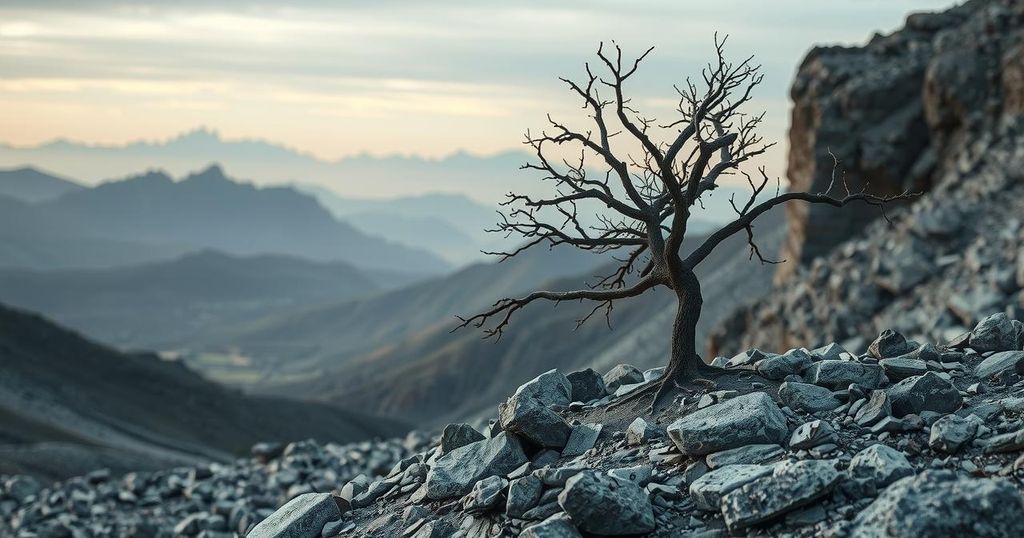This week, at least 773 individuals were killed in Goma, Congo, amid conflicts with Rwanda-backed M23 rebels. The Congolese military has reclaimed some territory, but the situation remains grave, with ongoing violence and humanitarian crises. Residents face significant challenges, as the rebels promise restoration of services while civil society reports atrocities against civilians.
In a troubling escalation of violence this week, at least 773 individuals have died in Goma, the largest city in eastern Congo, during conflicts with Rwanda-backed M23 rebels. Congolese authorities reported that the death toll, which may rise due to undisclosed casualties from mass graves, underscores the severe humanitarian crisis following the rebels’ recent seizure of the city. The military has managed to recover some territory, but significant instability persists in the region characterized by armed conflict for over a decade.
The fighting has led to the displacement of many residents, with hundreds returning to Goma under the rebels’ promise of restoring essential services. However, the grim scene remains as neighborhoods are littered with debris, and civilians are left mourning their losses. Jean Marcus, a local affected by the violence, illustrated the emotional toll on the community, expressing exhaustion and despair amidst the ongoing turmoil.
The M23 rebels, a dominant force among various armed groups in eastern Congo, are bolstered by approximately 4,000 Rwandan troops, a surge from the 2012 levels when they last took control of Goma. Following these developments, the Congolese military has made gains by reclaiming villages previously lost to the rebels, signaling a flicker of resistance amidst overwhelming odds. However, the military has suffered significant personnel losses, complicating their efforts.
The UN has reported the M23’s rapid advance near the provincial capital of Bukavu, indicating a continued threat in the region. In response to the worsening situation, UN peacekeeping chief Jean-Pierre Lacroix warned that rebel forces capturing significant infrastructure like airports could further escalate tensions. Humanitarian agencies view the capture of Goma as a critical emergency, halting aid operations vital to millions displaced by conflict.
Persisting violence has led to dire human rights concerns, including summary executions by the M23 and accusations of sexual violence involving Congolese forces. The U.N. human rights office has documented serious abuses, including forced labor and conscription of civilians, while the humanitarian crisis grows more desperate and widespread. The consequences of this conflict are suffocating essential aid delivery, stranding entire communities without support, as addressed by Mercy Corps officials.
The ongoing conflict in eastern Congo, particularly in and around Goma, remains a product of historical ethnic tensions and competition for the region’s rich mineral resources. Despite a decade of intermittent peace efforts, over 100 armed groups continue to vie for control over these resources, exacerbated by external support, notably from Rwanda. The M23 rebel group has emerged as a principal power, significantly impacting the humanitarian landscape as they engage in violent confrontations with Congolese military forces and exacerbate the plight of civilians caught in the conflict. Recent escalations have heightened fears of a more extensive regional conflict as crucial areas within eastern Congo fall under rebel control, leading to widespread suffering and displacement among the local populace.
In summary, the seizure of Goma by M23 rebels has resulted in an alarming humanitarian crisis, with lives lost and communities uprooted. This escalation illuminates the ongoing cycle of violence and instability in eastern Congo, challenging efforts to restore peace and security. As the international community watches, the need for urgent humanitarian assistance and effective intervention remains critical to prevent further suffering of civilians caught in this protracted conflict.
Original Source: www.theguardian.com




